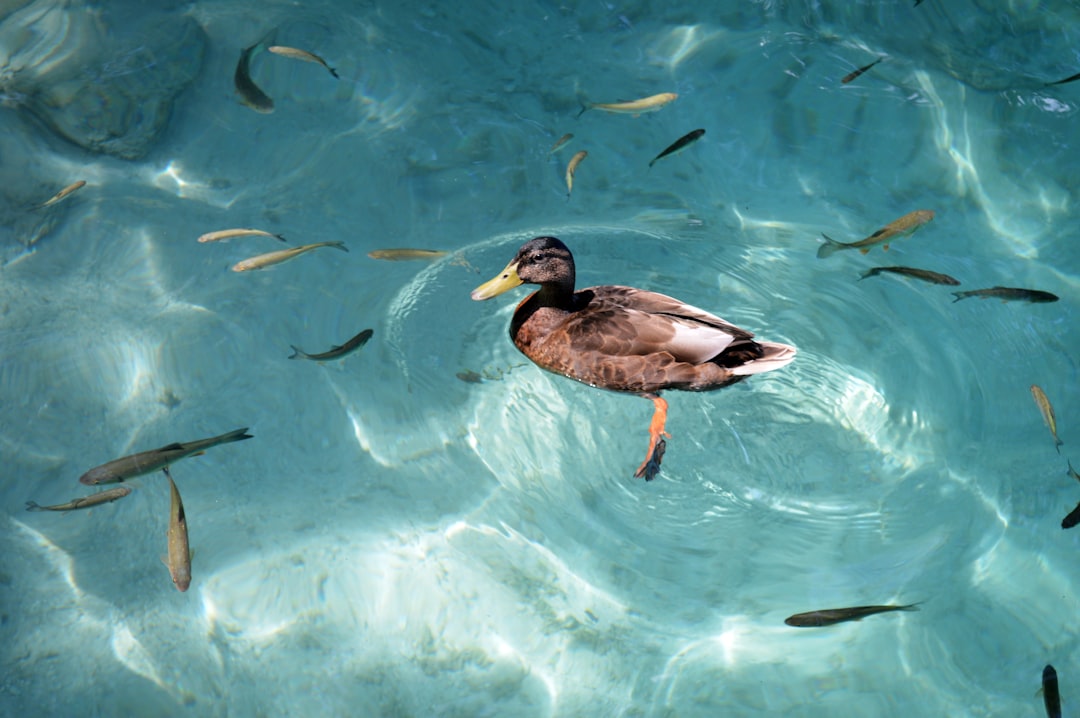Duck Egg Production: How Many Do They Lay?

Duck egg production is the process of raising ducks for the purpose of collecting their eggs. Duck eggs have been consumed for centuries and are a popular choice in many cuisines around the world. They are known for their rich flavor, larger size, and higher nutritional value compared to chicken eggs. Duck egg production can be a profitable venture for farmers and individuals looking to diversify their agricultural activities.
Duck eggs offer several benefits over chicken eggs. They have a thicker shell, which makes them less prone to breakage during transportation and storage. The thicker shell also gives duck eggs a longer shelf life compared to chicken eggs. Duck eggs have a higher fat content, which contributes to their rich flavor and creamy texture. They also contain more protein, vitamins, and minerals than chicken eggs, making them a nutritious choice for consumers.
Key Takeaways
- Duck egg production is a growing industry with increasing demand for its unique taste and nutritional benefits.
- Different duck breeds have varying egg-laying capacities, with some producing up to 300 eggs per year.
- Factors such as age, nutrition, lighting, and stress can affect a duck’s egg production.
- Ducks typically lay eggs during the spring and summer months, with peak production occurring around 6-7 months of age.
- Proper nutrition, housing, and management practices can help increase duck egg production and maintain a healthy flock.
Understanding Duck Breeds and Their Egg-Laying Capacity
There are several different breeds of ducks, each with its own characteristics and egg-laying capacity. Some popular duck breeds for egg production include the Khaki Campbell, Indian Runner, and Pekin ducks.
Khaki Campbell ducks are known for their high egg-laying capacity. They can lay up to 300 eggs per year, making them one of the most productive duck breeds. Khaki Campbells are also known for their calm temperament and adaptability to different environments.
Indian Runner ducks are another popular choice for egg production. They are known for their upright stance and distinctive running gait. Indian Runners can lay up to 200-300 eggs per year, depending on the individual bird and its environment.
Pekin ducks are primarily raised for meat production but also lay a decent number of eggs. They can lay up to 200 eggs per year on average. Pekin ducks are known for their large size and white feathers.
Factors Affecting Duck Egg Production
Several factors can affect duck egg production, including environmental factors, nutrition, and health.
Environmental factors play a crucial role in the egg-laying capacity of ducks. Ducks require a suitable habitat with access to water for swimming and foraging. They also need a comfortable nesting area where they can lay their eggs. The temperature and lighting conditions in the environment can also impact egg production. Ducks prefer moderate temperatures and natural lighting conditions to stimulate egg-laying.
Nutrition is another important factor in duck egg production. Ducks require a balanced diet that includes a mix of grains, greens, and protein sources. A lack of proper nutrition can lead to reduced egg production or poor egg quality. It is important to provide ducks with a feed that meets their nutritional needs and supplement their diet with fresh greens and insects.
Health is also crucial for optimal egg production. Ducks should be kept in a clean and sanitary environment to prevent the spread of diseases. Regular veterinary check-ups and vaccinations are essential to maintain the health of the flock. Any signs of illness or disease should be addressed promptly to prevent a decline in egg production.
How Many Eggs Do Ducks Lay?
| Duck Breed | Number of Eggs Laid per Year |
|---|---|
| Khaki Campbell | 300 |
| Indian Runner | 200 |
| Rouen | 150 |
| Pekin | 140 |
| Muscovy | 60-180 |
Ducks generally lay fewer eggs compared to chickens, but their eggs are larger in size. On average, a duck can lay around 150-200 eggs per year, depending on the breed and individual bird. However, this number can vary based on several factors.
The age of the duck plays a significant role in egg production. Young ducks may take some time to reach maturity and start laying eggs. The peak egg-laying age for ducks is typically between 1-2 years old. After that, egg production may gradually decline.
Other factors that can affect the number of eggs laid include genetics, diet, and overall health. Some breeds are more prolific layers than others, while certain dietary deficiencies or health issues can impact egg production.
Average Duck Egg Laying Capacity
Different duck breeds have varying egg-laying capacities. Here is a breakdown of the average number of eggs laid per year by some popular duck breeds:
– Khaki Campbell: 250-300 eggs per year
– Indian Runner: 200-300 eggs per year
– Pekin: 150-200 eggs per year
– Muscovy: 60-180 eggs per year
It is important to note that these numbers are averages and can vary depending on individual birds and their environment. Factors such as diet, health, and management practices can also influence egg-laying capacity.
Peak Egg-Laying Season for Ducks

Ducks typically have a peak egg-laying season during the spring and summer months. This is when the days are longer, and natural lighting conditions stimulate egg production. Ducks may lay fewer eggs or stop laying altogether during the winter months when daylight hours are shorter.
Factors that can affect the peak egg-laying season include breed, age, and environmental conditions. Some breeds may have a longer peak season compared to others. Young ducks may take some time to reach their peak egg-laying capacity. Environmental factors such as temperature and lighting conditions can also impact the timing and duration of the peak season.
How to Increase Duck Egg Production
If you are looking to increase duck egg production, there are several tips and strategies you can implement:
1. Provide a suitable environment: Ducks require a comfortable and stress-free environment to lay eggs. Ensure they have access to clean water for swimming and foraging. Provide them with a comfortable nesting area where they can lay their eggs undisturbed.
2. Optimize nutrition: Ducks need a balanced diet to support optimal egg production. Ensure they are receiving a feed that meets their nutritional needs, including a mix of grains, greens, and protein sources. Supplement their diet with fresh greens and insects to provide additional nutrients.
3. Manage lighting conditions: Ducks rely on natural lighting conditions to stimulate egg production. Ensure they have access to natural light during the day and provide additional lighting if necessary. The ideal lighting duration for ducks is around 14-16 hours per day.
4. Monitor health: Regular veterinary check-ups and vaccinations are essential to maintain the health of the flock. Address any signs of illness or disease promptly to prevent a decline in egg production. Provide a clean and sanitary environment to prevent the spread of diseases.
5. Consider breed selection: If you are specifically looking to increase egg production, consider selecting breeds known for their high egg-laying capacity, such as Khaki Campbells or Indian Runners.
Tips for Maintaining a Healthy Flock
Maintaining a healthy flock is crucial for successful duck egg production. Here are some tips to help you keep your ducks healthy:
1. Provide clean water: Ducks require clean water for drinking and swimming. Ensure their water source is clean and free from contaminants. Change the water regularly to prevent the growth of harmful bacteria.
2. Maintain a clean environment: Ducks should be kept in a clean and sanitary environment to prevent the spread of diseases. Regularly clean their housing area and remove any waste or debris.
3. Practice good biosecurity: Implement biosecurity measures to prevent the introduction and spread of diseases. This includes limiting access to your flock, practicing proper hygiene, and disinfecting equipment and tools.
4. Provide proper nutrition: Ducks require a balanced diet to support their overall health and egg production. Ensure they are receiving a feed that meets their nutritional needs and supplement their diet with fresh greens and insects.
5. Monitor for signs of illness: Regularly observe your ducks for any signs of illness or disease, such as changes in behavior, appetite, or appearance. Address any health issues promptly to prevent further complications.
Common Challenges in Duck Egg Production
Duck egg production can come with its own set of challenges. Here are some common problems faced by duck egg producers and their solutions:
1. Low egg production: If your ducks are not laying enough eggs, it could be due to factors such as poor nutrition, stress, or health issues. Ensure they are receiving a balanced diet and are in a comfortable environment. Monitor their health and address any issues promptly.
2. Poor egg quality: If your ducks are laying eggs with thin shells or abnormal shapes, it could be due to nutritional deficiencies or health issues. Ensure they are receiving a feed that meets their nutritional needs and supplement their diet with calcium-rich foods.
3. Egg breakage: Duck eggs have a thicker shell compared to chicken eggs, but they can still break if mishandled. Handle the eggs with care and provide proper nesting areas for your ducks to lay their eggs.
4. Predators: Ducks can be vulnerable to predators such as foxes, raccoons, and birds of prey. Implement measures to protect your flock, such as secure fencing, predator deterrents, and regular monitoring.
Is Duck Egg Production Right for You?
Duck egg production can be a rewarding venture for farmers and individuals looking to diversify their agricultural activities. Duck eggs offer several benefits over chicken eggs, including a longer shelf life, richer flavor, and higher nutritional value.
Before starting a duck egg production business, it is important to consider several factors. These include the breed of ducks you plan to raise, the required infrastructure and resources, and the market demand for duck eggs in your area.
By understanding the different breeds of ducks, factors affecting egg production, and implementing proper management practices, you can increase the productivity and profitability of your duck egg production venture.
If you’re curious about how many eggs ducks lay, you might find this article on Lawn World quite interesting. They have a comprehensive guide on duck breeding and egg production, which provides valuable insights into the topic. From understanding the factors that influence the number of eggs ducks lay to learning about different duck breeds and their egg-laying capabilities, this article covers it all. To delve deeper into this fascinating subject, check out the article on Lawn World. You can also explore their sitemap for more related content.
FAQs
What is the average number of eggs a duck lays?
The average number of eggs a duck lays per year varies depending on the breed, but it is typically between 100-300 eggs per year.
How often do ducks lay eggs?
Ducks typically lay eggs every 24-26 hours during their laying season, which usually lasts from early spring to late summer.
At what age do ducks start laying eggs?
Ducks usually start laying eggs at around 5-6 months of age, although this can vary depending on the breed and individual bird.
How long do ducks lay eggs for?
Ducks usually lay eggs for several years, with their peak laying period occurring during their second year of life. After that, their egg production may gradually decline.
Do all ducks lay eggs?
Yes, all female ducks are capable of laying eggs, although some breeds are more prolific layers than others.
Can ducks lay eggs without a male?
Yes, female ducks can lay eggs without a male present. However, these eggs will not be fertilized and will not hatch into ducklings.



